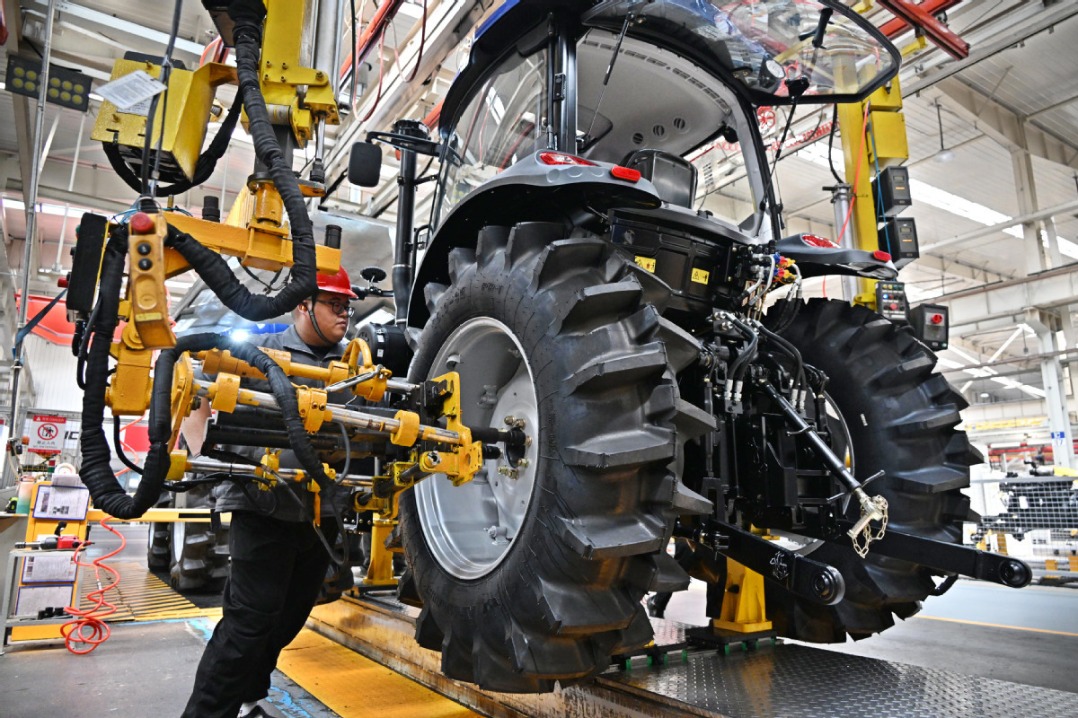Connectivity of industrial chains to be enhanced


China is willing to work with African countries to advance modernization and pursue self-reliant development, while enhancing connectivity and deepening cooperation across industrial and supply chains, the country's top political adviser said on Thursday.
Wang Huning, chairman of the National Committee of the Chinese People's Political Consultative Conference, said China aims to sign a framework agreement for economic partnership with African countries to expand and improve mutually beneficial cooperation.
Wang, a member of the Standing Committee of the Political Bureau of the Communist Party of China Central Committee, made the remarks during a high-level meeting on industrialization and agricultural modernization at the 2024 FOCAC Summit in Beijing.
Noting that Africa's contribution to global manufacturing remains low, South African President Cyril Ramaphosa emphasized that African countries are keen to leverage platforms such as FOCAC to boost Africa's industrial and agricultural modernization.
With a well-developed industrial system and strength in innovation, China can help Africa play a larger role in the operation of global industrial and supply chains, Ramaphosa said, adding that Africa will better address its deficiencies in infrastructure and other factors by integrating market resources through the growth of the African Continental Free Trade Area.
Munetsi Madakufamba, executive director of the Southern African Research and Documentation Center in Harare, the capital of Zimbabwe, said the economies of China and Africa are highly complementary, with China providing practical technologies, advanced equipment and abundant capital, while African nations offer significant advantages in market size, labor and natural resources.
China has remained Africa's largest trading partner for 15 consecutive years. China-Africa trade reached $282.1 billion last year, up nearly 11 percent compared with 2021, demonstrating the strong resilience of bilateral trade, data from the National Development and Reform Commission showed.
The country's direct investment in Africa exceeded $40 billion by the end of last year, making it one of Africa's major sources of foreign investment.
China's investment in Africa is also becoming more diverse, moving beyond traditional industries like home appliances, textiles and construction materials to others such as pharmaceuticals, automotive and mobile phone manufacturing, said Shen Xiang, director of the department of Western Asian and African affairs at the Ministry of Commerce.
Chinese companies are also tapping into the African market and resources to boost local production capacity by transferring technology and fostering talent, helping to advance Africa's industrial chain development, he said.
Saliem Fakir, executive director of the African Climate Foundation, which is based in Cape Town, South Africa, said that China's advantages in technological innovation and infrastructure development can provide significant assistance to Africa in areas such as climate change mitigation and renewable energy development.




































